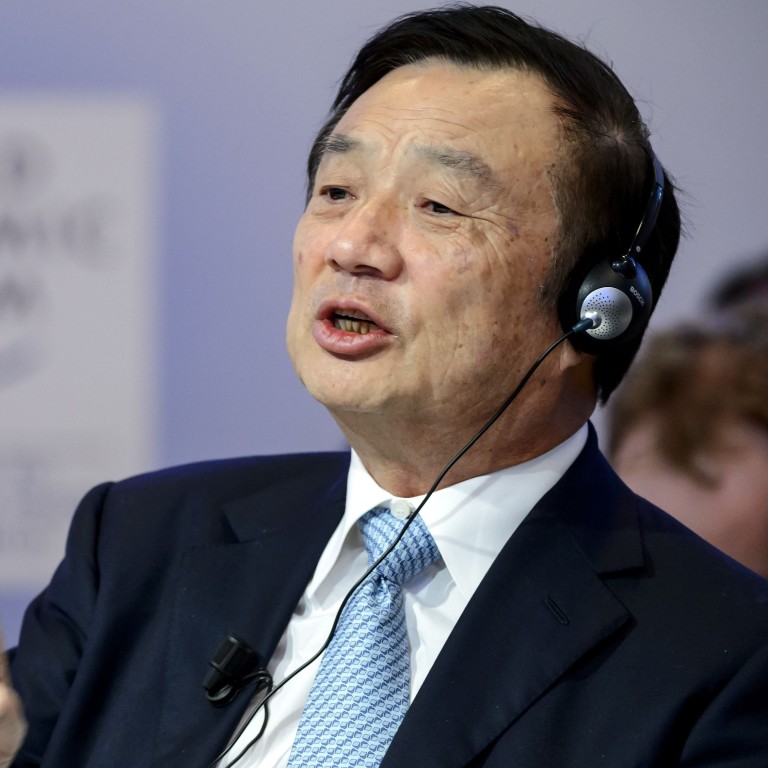
Huawei and Canada are victims of US-China technology stand-off, founder of telecoms giant says
- Ren Zhengfei says US case against his daughter Meng Wanzhou should not damage his company’s relationship with Canada
Huawei and Ottawa are victims of a hi-tech stand-off between Washington and Beijing but the tensions won’t affect the company’s investment in Canada, according to the Chinese telecom giant’s founder.
Ren Zhengfei’s assessment comes as China and Canada weather what some have called the worst crisis in relations between the two countries, triggered by the arrest in Vancouver in December of Huawei chief financial officer Meng Wanzhou, who is also Ren’s daughter.
The arrest was made at the request of the United States, which seeks to extradite Meng over possible violations of sanctions against Iran.
“Meng Wanzhou has committed no crime. She didn’t violate any Canadian rules, and I think both Canada and Huawei are victims because this case hurts people in both countries, and bilateral relations also suffered setbacks,” Ren told CTV, a Canadian television network, in an interview aired on Thursday.
“We will not reduce our investment in Canada because of that.
“Meng Wanzhou is an individual case, and I don’t think it should influence in any way the relationship Canada has with Huawei.”
Ren’s tone was more conciliatory than Beijing’s, with Chinese officials attacking Canada’s decision to proceed with Meng’s extradition as a politically motivated act.
Lu Shaye, Chinese ambassador to Canada, said in December that Meng’s arrest was “back-stabbing” by a friend, and he warned of repercussions if Canada banned Huawei from its 5G network.
Meng’s arrest was quickly followed by the detention of two Canadians in China on espionage charges, a move widely considered as retaliation by Beijing.
Former Canadian diplomat Michael Kovrig was detained on December 10. He was accused at the start of March of “severely violating” Chinese law by acting as a spy and stealing Chinese state secrets and intelligence since 2017, state media reported. Kovrig was working as a senior adviser for International Crisis Group, a non-governmental organisation.
Michael Spavor, a businessman based in the city of Dandong in Liaoning province, was held on similar allegations.
On Thursday, Ren said he supported his daughter’s civil claim against the Canadian authorities alleging that her constitutional rights were breached by her detention.
“I support her using legal action to defend her rights,” he said.
Ren also said Meng wanted to quit her job before her arrest in December.
“One month before that arrest, she wanted to resign and find a job elsewhere,” he told CTV. “She was not happy working here, but after being arrested this matter improved our relationship and now she understands how difficult life can be.
“In the past, she had a smooth path. She couldn’t take the setbacks very well … You have to suffer a lot before becoming a hero and if you don’t have scars, you won’t have tough skin.”
Huawei pleaded not guilty to a 13-count indictment that alleged it defrauded US banks by concealing dealings with Iran in violation of US sanctions.

